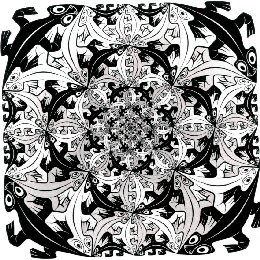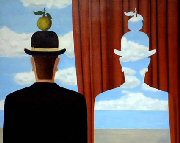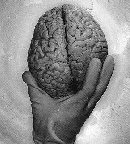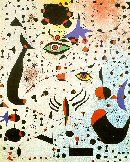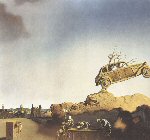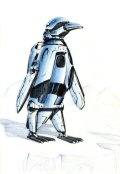In the Hindu and tantric Buddhist esoteric traditions, human beings are seen as composed of centers of energy called chakras. Of those, the sixth chakra, called Ajna chakra, is located between the eyes and is often associated with the pineal gland and the “third eye.”
The sixth chakra resonates with an intuitive kind of intelligence, with clear thinking and clear vision. The sixth chakra way of knowing allows one to see the forming of clear patterns in a huge amount of information. This chakra synthesizes many different aspects of intelligence and gives the skill to pick out information about anything by non-logical means.
The sixth chakra world points to a fascinating place where pure knowledge is omnipresent. Descartes would probably have loved to imagine such a place. Anybody heavily involved with information technology as well would enjoy the sixth chakra capacity to see patterns in the information overload and to live in a clear, brilliant place where intuition rules.
The sixth chakra is even more than intelligence as we know it. It is pure knowing, where even thinking is not needed any more. It is also a place where single individualities melt, where there’s nobody who knows and just knowing remains, a place where there’s no separation between inner and outer, between me and you… no more duality. There is a transpersonal flavour about the sixth body.
The sixth chakra is supposed to take charge of the person when the ego, through a spiritual path, doesn’t have the primary role any more. The sixth chakra starts to coordinate the body and the mind from a higher awareness than the ego and one of its names is “the command chakra.” The ego keeps the personality together through a thick net of thoughts, feelings and conditionings that are mostly acquired, while the Ajna chakra gives direct vision, knowledge and action, non-mediated by any past conditionings.
[/en][it]
Nelle tradizioni esoteriche Indù e nel Buddismo tantrico, gli essere umani sono composti da centri energetici chiamati chakra. Di questi, il sesto chakra, chiamato Ajna chakra, è localizzato in mezzo agli occhi ed è spesso associato con la ghiandola pineale e il “terzo occhio”.
Il sesto chakra risuona con un tipo di intelligenza intutitivo, con un pensiero e una visione nitida. La modalità di conoscere del sesto chakra consente ad una persona di vedere con chiarezza delle strutture, dei pattern, all’interno di un’enorme quantità di informazioni. Questo chakra sintetizza molti diversi aspetti dell’intelligenza e conferisce la capacità di estrapolare informazioni su qualsiasi tema tramite procedimenti non-logici.
Il mondo del sesto chakra mostra un luogo affascinante dove la conoscenza pura è onnipresente. Probabilmente Cartesio avrebbe amato immaginare un tale luogo. Anche chiunque è fortemente coinvolto nell’elaborazione dell’informazione si feliciterebbe della capacità del sesto chakra di vedere delle hiare strutture nel sovraccarico informativo e di risiedere in un luogo trasparente e brillante dove l’intuizione la fa da padrona.
Il sesto chakra va oltre alla definizione di intelligenza per come la conosciamo. E’ conoscenza allo stato puro, dove anche il pensiero stesso non è più necessario. E’ anche un luogo dove le singole individualità si fondono, dove non vi è più nessuno che conosce e dove rimane solo la conoscenza, un luogo ove non vi è separazione tra interiore ed esteriore, tra me e te, nessuna dualità. Il sesto corpo ha un sapore transpersonale.
Si ritiene che il sesto chakra si prenda cura della persona quando l’ego, tramite un percorso spirituale, non ha più un ruolo primario. Il sesto chakra inizia a coordinare il corpo e la mente da una conspevolezza più elevata dell’ego, tanto che uno dei suoi nomi è “il chakra del comando”. L’ego mantiene la personalità unita attraverso una fitta rete di pensieri, emozioni e condizionamenti, perlopiù acquisiti, mente l’Ajna chakra produce una visione, una conoscenza e un’azione diretta, non mediata da alcun condizionamento del passato.
[/it]
Leggi tutto “Internet and the weakening of central (inner) organizations”


